Couples stroll casually along palm tree-lined footpaths while others ride bikes, sip coffee or eat avocado and feta on toast for breakfast at one of the busy cafes with an ocean view.
As some early risers head into the sparkling blue Coral Sea for a morning dip – careful to only swim in the netted marine stinger enclosures – another group participates in sunrise yoga on the beach, framed by mountains sporting lush green vegetation.
On a clear day, islands and coral-cays can be seen in the distance.
A gentle breeze lends a brief reprieve from what is to be another humid summer day in the small ocean-side village, population 2,554.
Palm Cove is described by many as a tropical paradise with a “vibe” even more relaxed and less crowded than it’s just as scenic, but slightly larger northern neighbour, Port Douglas.
It’s this reputation, coupled with being in proximity to one of the world’s Seven Natural Wonders, a World Heritage-listed rainforest and the Atherton Tablelands which attracts visitors from all around the world.
What tourists enjoying their holidays in the Far North Queensland beachside towns – or in their bigger gateway neighbour to the south, Cairns – do not notice is how some of those hospitality or other workers helping them enjoy their stay are sleeping in their vans or backpacker hostels thanks to a lack of available, long-term rental accommodation.
Many blame the increased number of short-term holiday rentals, such as those advertised through Airbnb’s, Stayz or similar digital platforms.
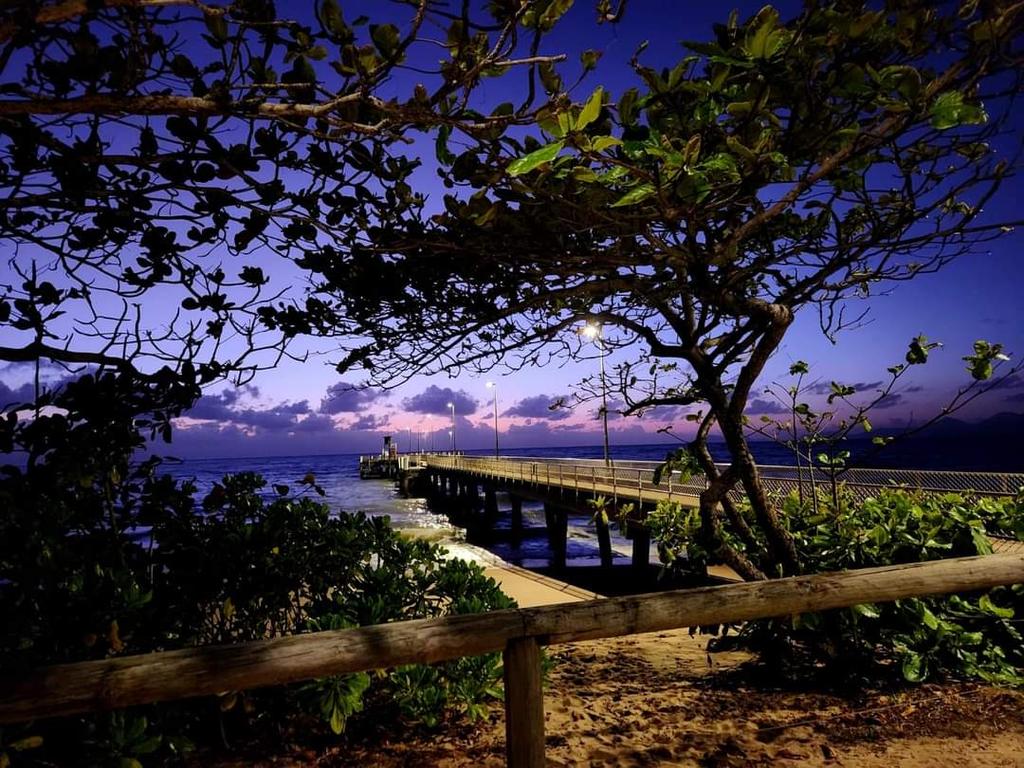
The lack of rental houses has become such a problem that, in some cases, business owners have had to buy their own properties just to retain staff as otherwise – unable to find a place to live – the workers have had to leave to find jobs elsewhere.
The allure of sun, pristine yet empty beaches, tropical islands, the Great Barrier Reef, rainforests, wildlife and surf is echoed throughout other parts of the state where similar situations are occurring, such as in the tourism-heavy regions of the Whitsundays and in southeast Queensland, the Sunshine and Gold Coast areas.
Since the launch of Air Bed and Breakfast – commonly known as Airbnb – in the US in 2008, digital platforms managing short-term letting (STL) have become big business, connecting millions of hosts and guests in cities around the world, according to a 2018 report titled ‘Technological disruption in private housing markets: the case of Airbnb’ published by the Australian Housing and Urban Research Institute.
While the use of residential properties for temporary lodging and holiday rentals has long been a feature of urban housing markets, sites like Airbnb, HomeAway and Booking.com have “facilitated a step-change in the scale of STL, triggering a range of unanticipated consequences”, the study said.
Those web sites act as online marketplaces, allowing property owners to rent out their homes to travellers looking for accommodation, with the platforms charging a commission from each booking.
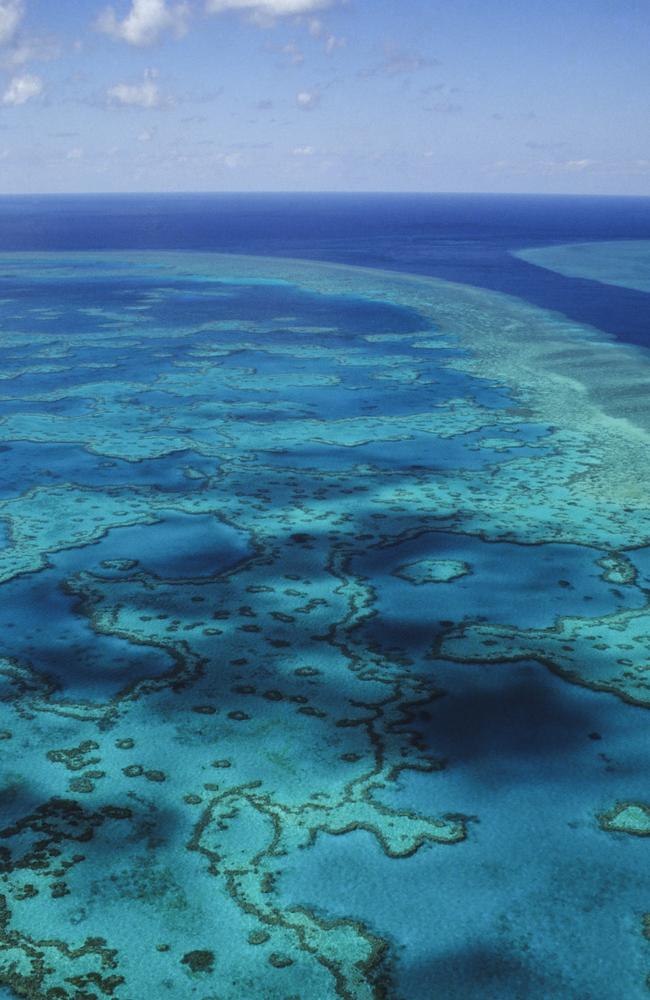
In Queensland, the glut of short-term rental accommodation is “swallowing up” tourism towns already struggling amid the state’s housing crisis.
Figures compiled exclusively for The Courier-Mail found that as long-term accommodation offerings plummet, short-term holiday listings from Airbnb and Stayz have skyrocketed in some of the Sunshine State’s most popular coastal destinations.
Data analytics firm AirDNA found the Douglas Shire – which includes Port Douglas – the Cairns Regional Council area – which includes Palm Cove – and the Whitsundays Region were among the nation’s Top 10 destinations for holiday listings as of December.
The research found about 60 per cent of all short-term accommodation in the Whitsundays was available “full-time”, meaning it is stock that is taken out of the long-term market for at least nine months or more every year.
The Whitsundays region, along Queensland’s central coast, had an annual occupancy rate of 72.2 per cent, while in the Far North, the Douglas Shire had a 53.6 per cent full-time availability rate and an annual occupancy rate of 58.8 per cent.
The greater Cairns area had 45.4 per cent of its short-term homes available to tourists year-round, with an annual occupancy rate of 68.3 per cent, according to the data.
Madeleine Parkin from AirDNA said Cairns had the largest non-urban market of short-term rental accommodation in Queensland with 2,124 listings advertised in December, followed by the Whitsundays, at 1,102.
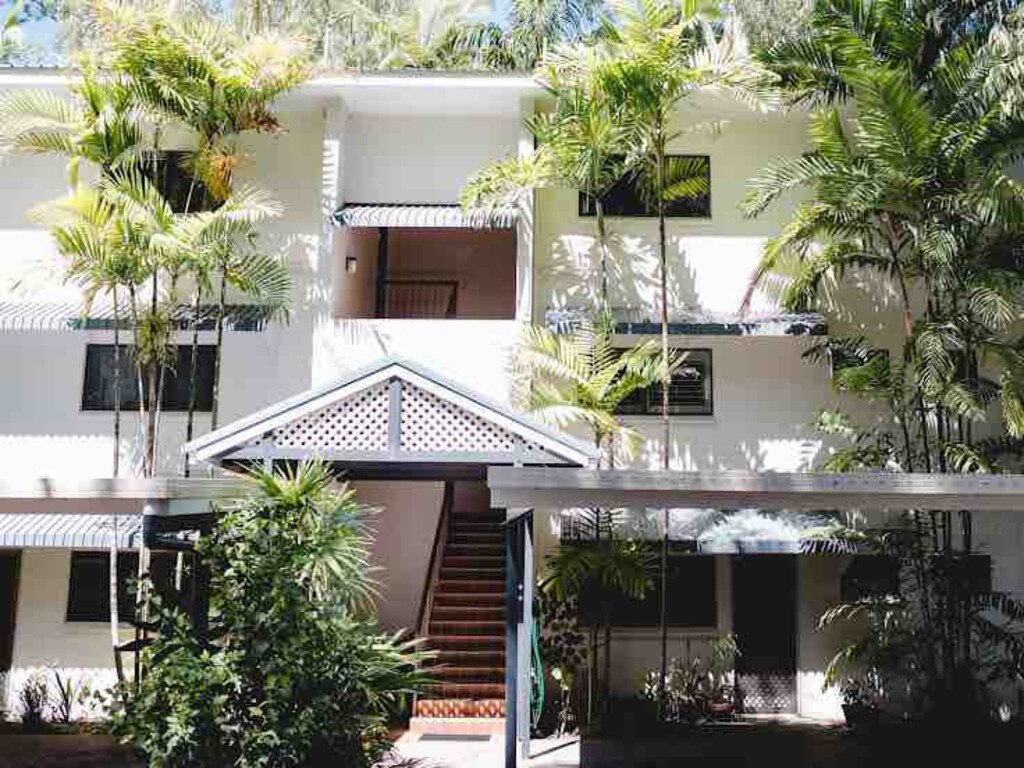
There were 996 short-term rentals available in the Douglas Shire in December, though that was down from 1026 in October, according to the AirDNA figures.
Tony Moore, 56, has been running his restaurant Chill at Portofino, in Palm Cove, for the past 15 years and said things have never been more dire when it comes to retaining employees.
“It’s become really difficult to attract backpackers and chefs, they (are) really struggling to get accommodation,” he said.
The restaurateur blamed Airbnb and the “southern buyers” for “changing the dynamic” in Palm Cove.
“They bought investment properties and the vast majority were folded into Airbnb’s,” he lamented.
In many cases, one weekend at an Airbnb property can cost the same as one week’s rent, while the weekly price of leasing a house in the same three regions of Queensland has also skyrocketed by more than 50 per cent over the past five years.
The only areas with more short term holiday home listings were in the Brisbane, Gold and Sunshine Coast areas.
Exclusive data from property analysis firm PropTrack found the median weekly rent for any dwelling in Airlie Beach in the Whitsundays jumped from $400 in November, 2018 to $650 last November, a 62.5 per cent increase.

Port Douglas renters experienced a 53.7 per cent uplift from $340 to $523, while in Palm Cove the average house rent went from $330 to $495 per week, a 50 per cent increase over the same time period.
Mr Moore said retaining restaurant staff members because of the increasingly difficult housing situation had become such a problem in recent years he went out on a limb and signed a lease in his own name – so that his employees would have a guaranteed rental.
“We thought the only way we’re going to be able to attract staff (is if) we took a lease on a four-bedroom house,” he said.
“That’s been successful.”
The businessman said he made the decision after hiring five chefs – only to have all of them quit over a two-month period because they were unable to find a permanent place to live.
“People would rather get $1000 over a weekend, whereas traditional leasing would be $1000 over a week,” he said.
An Airbnb representative claims the company’s presence in regional hubs creates a thriving tourist economy but said they were working with local and state governments on housing issues, “especially in areas of high tourism” like Port Douglas and Palm Cove.
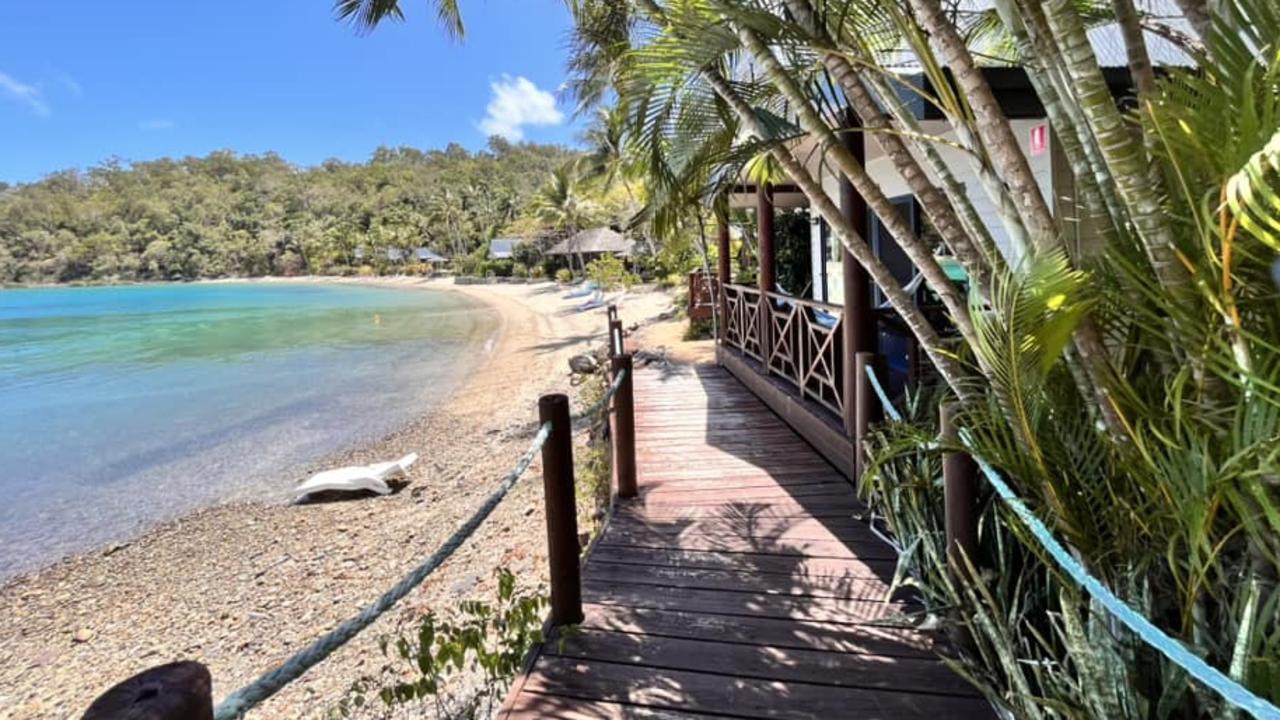
“Housing issues have not appeared overnight and have existed long before the founding of Airbnb,” she said, adding “many houses would remain empty if not for their platform.”
The spokeswoman pointed to Cairns as an example of a flourishing local economy, saying “a recent report by Oxford Economics shows Airbnb guests travelling to Queensland spent over $2.8 billion with guests visiting Cairns spending $230-million and helping support 1200 jobs”.
Cairns Regional Councillor Brett Olds, 46, whose division includes Palm Cove, said the area’s Airbnb situation needed “to be regulated better”.
The Trinity Beach resident said it was ‘none of his business’ what people did with their own private properties, but when Airbnb’s started competing with local operators like hotels, he wanted the Queensland government to step in.
One person along every 800m of coastline is homeless within 25km of the Palm Cove region, according to Mr Olds.
Pedro Carricaburu, 31, said he had to sleep in his van while working in hospitality in Port Douglas because he could not find accommodation.
Now working on North Stradbroke Island, the Argentinian, who has been in Australia for two years on a working holiday visa, said he has experienced the same difficulty with finding long-term rentals.
“The issue with Airbnb isn’t unique to Australia, it’s a global concern,” he said.
“I experienced it both on Straddie and in Port Douglas, where I couldn’t find accommodation, resorting to staying in hostels or my van.”

Mr Carricaburu said during peak tourism seasons, “finding accommodation is nearly impossible.”
“Rental prices cater solely to tourists, forcing essential service providers like us to hop from house to house, campgrounds or rely on friend’s hospitality,” he said.
“My friends have moved seven times in less than two months. It’s chaotic.
“Even as the season wanes, housing remains scarce. … Homeowners prefer renting to tourists but it has a negative impact on the community.”
Port Douglas locals call for greater regulations
An hour’s drive north of Cairns, Port Douglas locals are also feeling the pinch.
The Courier-Mail knows of one 23-year-old employee at a major tourism operator who was forced to live in a multi-bed hostel room for eight months while they desperately searched for accommodation.
They now rent out a spare room in their boss’s home.
Mayor Michael Kerr, said research provided to the Douglas Shire Council estimated about 60 per cent of the area’s total pool of housing was used for tourists.
He also said about 1200 properties changed hands during the Covid-19 pandemic to non-locals, many of whom have now listed those homes on Airbnb.
In November, Tara Bennett, then-Tourism Port Douglas Daintree’s chief executive officer, said she had witnessed first-hand Airbnb’s “absorbing” of Port Douglas, which has a population of 5582, according to the most recent 2021 Census.

“We have a lot of townhouses and apartments that were there particularly for workers,” she said.
“Now Airbnb has not only taken away 50 per cent of that stock, it’s also absorbed many of the residential houses.”
Restaurants are cutting down the days they are open, according to the Port Douglas local, while it takes at least a fortnight to score a doctor’s appointment because there’s such a shortage of medical staff.
Calls for restrictions for Airbnb’s
Ms Bennett, 47, of Port Douglas, urged local governments to consider some of the measures being adopted in places like Byron Bay to regulate companies like Airbnb.
In September, the NSW government gave the local Byron Shire Council the power to cap some short-stay rentals at 60 days, in line with advice from the state’s independent Planning Commission in the hope of easing the local housing crisis.
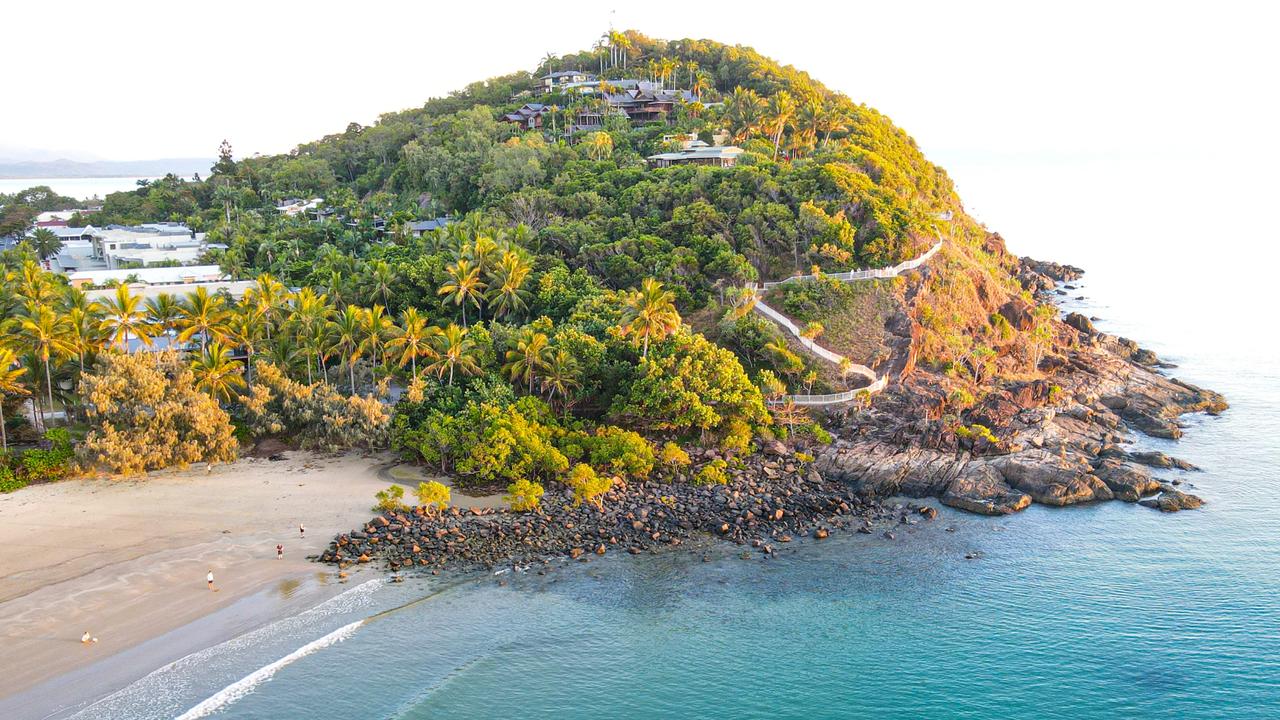
The Victorian government has also announced the introduction of a levy, which could be as high as 7.5 per cent, on short-term lettings as of January 1, 2025.
“Byron Bay put in some restrictions (for Airbnb), but we don’t have that ability to risk litigation,” Ms Bennett said.
“It’s very hard for us. Nothing’s been done.”
In late 2023, the Whitsundays region also put some local laws in place to regulate short-term housing.
The Director Regional Strategy and Planning at the Whitsunday Regional Council, Neil McGaffin, said homeowners renting out short-term accommodation in the area now need an annual licence to do so legally.
“The council thought it would be prudent to have better management (for short-term rentals),” he said.
“Some councils thought it (short term accommodation) was a concern.”
Mr McGaffin, 63, of Airlie Beach, said there were “housing pressures along the eastern seaboard”.
When it comes to the Airbnb situation in the Whitsundays, Mr McGaffin said “I wouldn’t say we have a massive problem, but I also wouldn’t say we don’t have any.
“But there’s no evidence of any direct nexus between people using their homes for short term accommodation and the lack of housing supply for longer term rentals.”
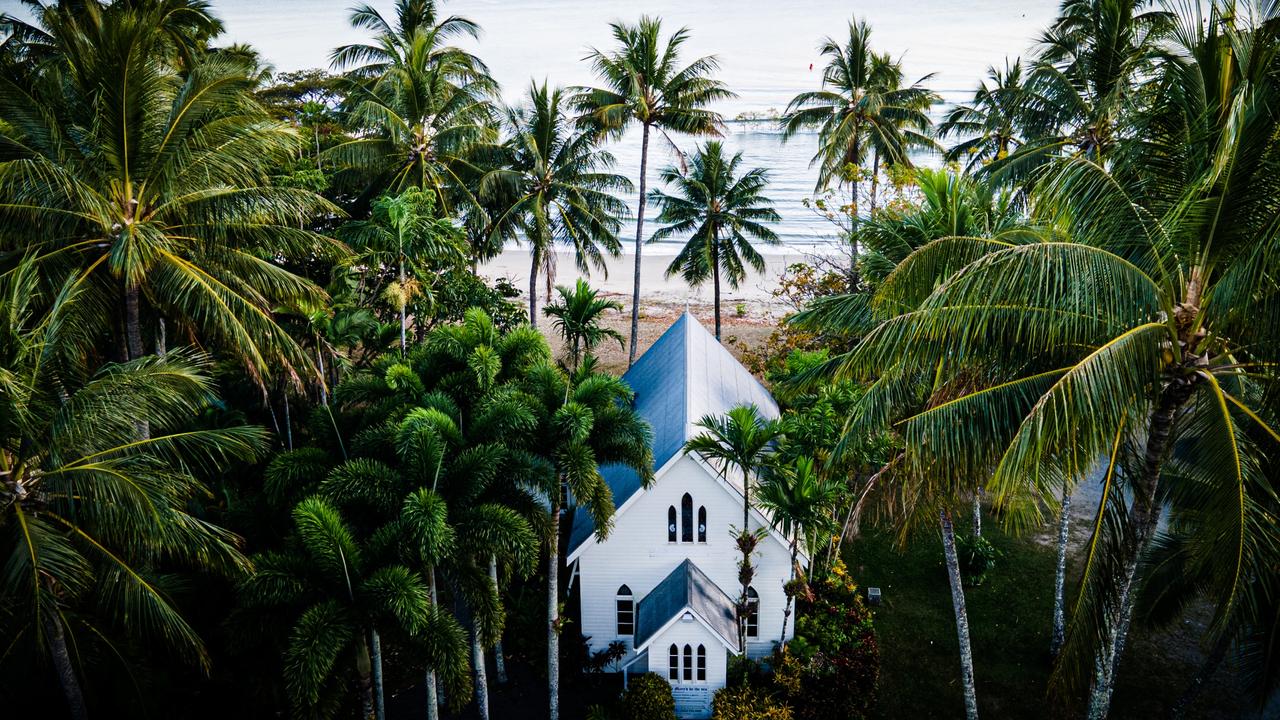
In the Douglas shire, Mr Kerr is calling for state intervention to implement similar laws.
“I find it extremely disappointing,” the mayor said.
“We’re in a housing crisis (but) I’m yet to see a housing minister step foot in my shire.
“That to me is horrendous. They should make a point of coming here.”
In a 2023 statement, Steven Miles, then-Deputy Premier and State Development, Infrastructure, Local Government and Planning minister, insisted short-term rentals had a “limited” impact on rental affordability.
“State-wide restrictions would fail to account for the diverse nature of short-term rental dynamics across Queensland,” he said.
“Councils in Queensland can move to regulate short-term rental accommodation in their local planning schemes and local laws, and we have seen some councils increase rates for residential properties used for this purpose.”
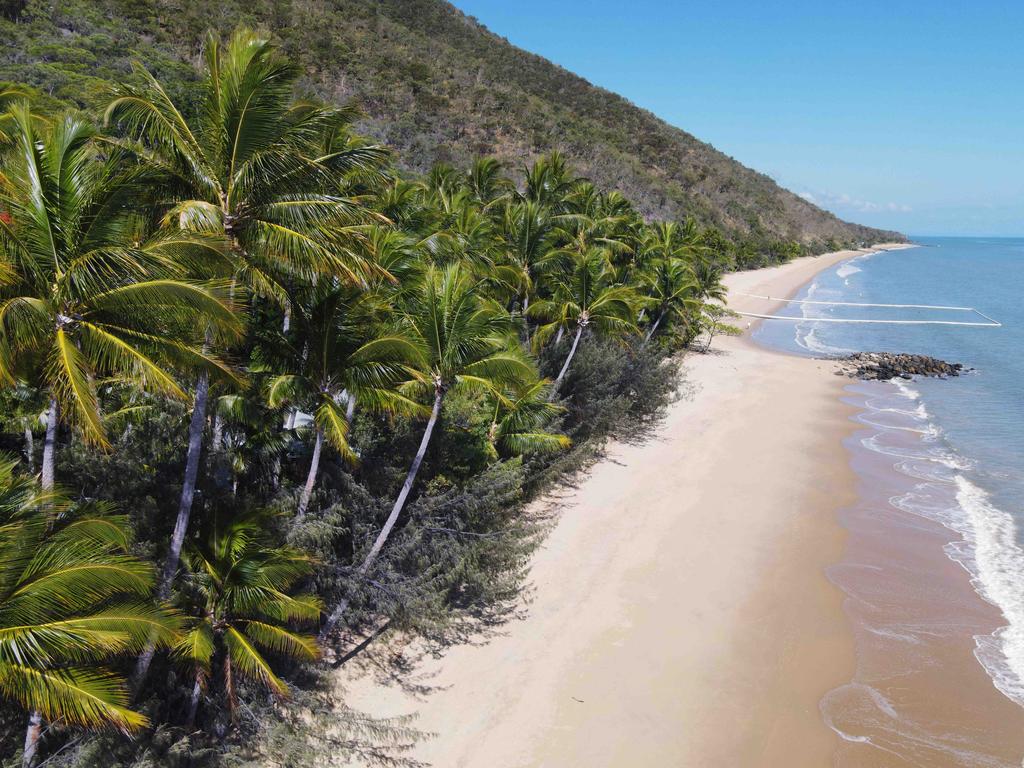
‘The problem is not short-term stays’
But Cameron Porter, 44, managing director of Porter’s Invest, whose business helps clients investing or buying homes in Southeast Queensland, said short stay options like Airbnb and Stayz, among others, were getting “a bit of a bad name with people thinking they’re taking from the local market.”
In reality, he said, there’s simply not enough houses available or being built quickly enough to cater for the increased supply and demand, particularly post the Covid-19 pandemic.
“There’s not enough properties being built in Queensland, or in all of Australia,” he said.
Mr Porter said proposed land tax changes the state government attempted to implement two years ago saw many investors leave the Queensland market, which further reduced available rental supply.
“Pre-Covid pandemic you didn’t have this supply issue, with rentals in general, it was a lot more balanced market,” he said.
“Then Covid hit. … We saw immigration numbers increase, including with people from New South Wales and other states moving north to housing affordability.”
The buyer’s agent also said some data could be skewed for some areas, depending on the local council regulations with regards to short-stay rentals or even what percentage of the market was “full time Airbnb rental compared to normal rentals”.
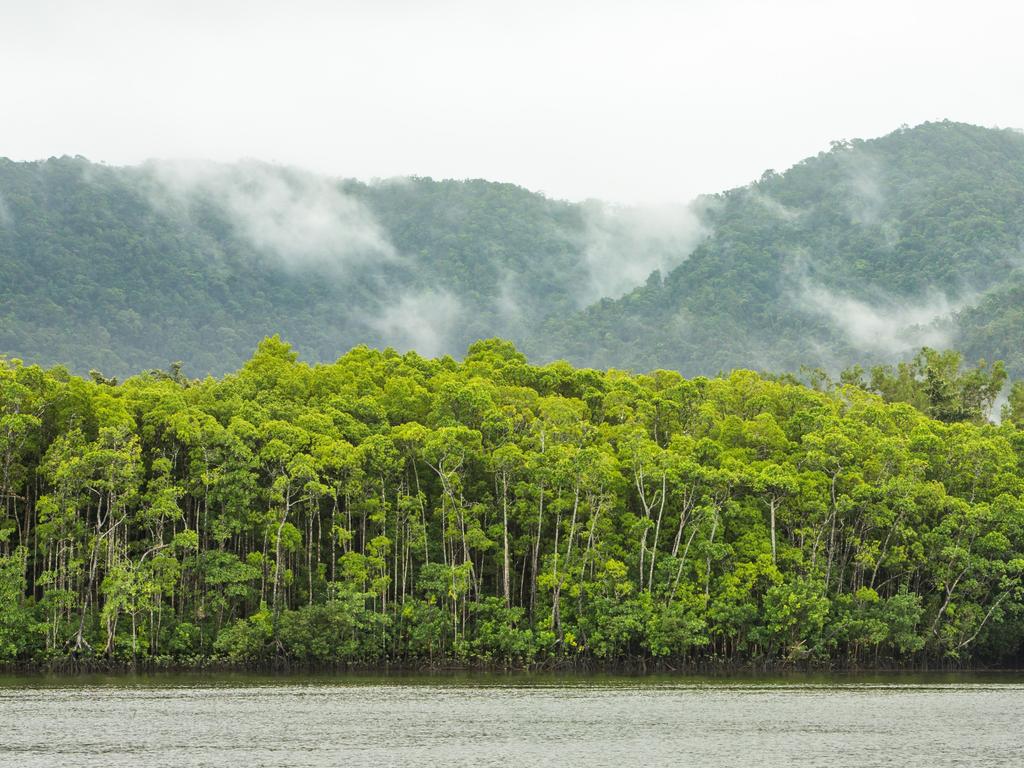
“For example, someone … might have a spare room in their house and supplement their income by renting it out … or if you have a retired couple and they have a caravan and drive off for two months to Victoria, they might put their house up for short term letting,” he said.
“So it will somewhat skew the data. Is it full time letting or part time to subsidise the bills, or an investor a holiday home?
“The problem is not Airbnb or short term stays, the problem is there’s just not enough housing overall.”
Mr Porter said in some flood-damaged areas, families had even been placed into Airbnb-type accommodation when other housing was not available.
“I don’t think Airbnb owners are the issue. There’s a gap in the market, there’s simply not enough homes on the market and we’ve seen it exacerbate after Covid,” he said.
“People who are staying in Airbnbs are bringing money into the local economy.
“Maybe the reason people are staying in Airbnbs is because there is not enough accommodation.”
UQ Study
Despite what travellers, locals and business men and women are reporting in some parts of the state, a 2023 University of Queensland study titled ‘A Review of the Impacts of Short-term Rental Accommodation (STRA) in Queensland’, found “there does not appear to be a clear pattern of increase in the per cent of dwellings used for STRA over the observer period of 2018 to 2023.”
“(Short term rentals) have existed for many decades as ‘holiday lettings’ but have proliferated into new geographical settings due to the emergence of Airbnb and other digital platforms,” the report said.
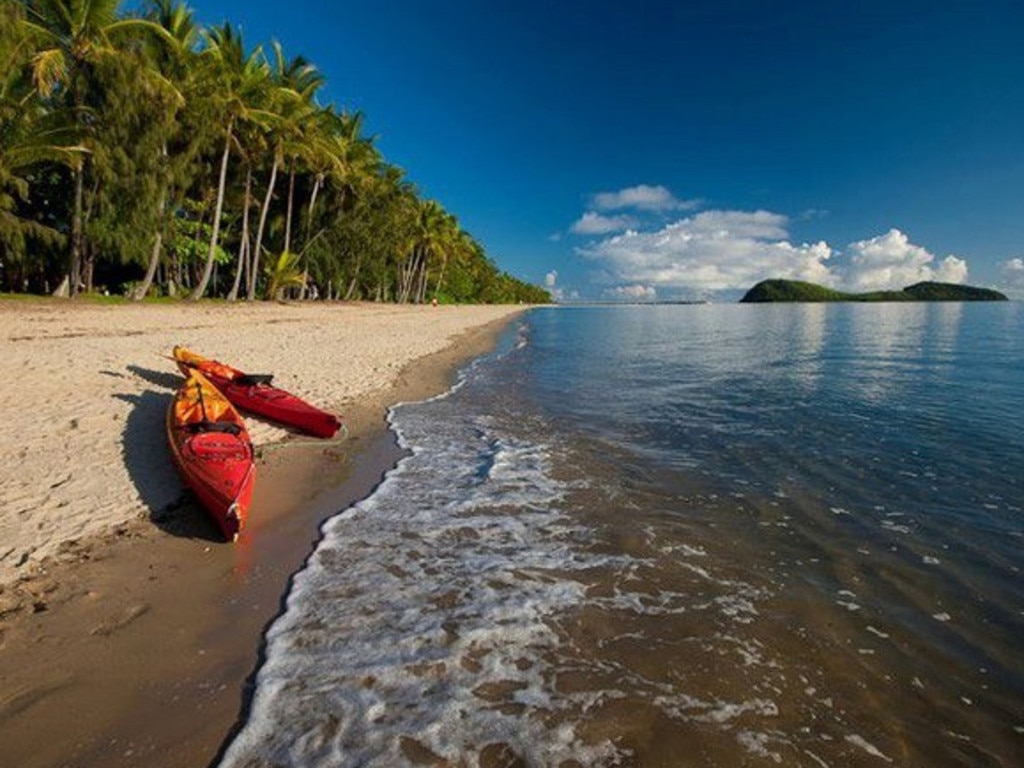
“Thus while STRA are not a new phenomenon in Queensland, the expansion of digital STRA platforms merits further investigation, particularly regarding the impacts on housing across the state.”
According to the UQ research, the number of active STRA listings in the Sunshine State peaked in the first quarter of 2020 at 32,232, which corresponded to about 20,000 dwellings.
During the same time period in 2023, the … number of listings “rebounded to nearly this figure, following a prolonged reduction of listings tied to pandemic-related order closures,” the report stated.
It also found “tourism-oriented regional areas”, such as Noosa on the Sunshine Coast and the Douglas Shire in FNQ, had “a higher proportion of the dwelling stock used for STRA than urban areas” like Brisbane.
“This may be explained by a shortage of other accommodation options, both short-term (eg hotels) or long-term (eg for housing seasonal labour),” the report avowed.
But the UQ report also claimed the number of STRA statewide was “found to be plateauing, as there are roughly the same number of STRA as there were in … 2020 and high rent prices seem to be persuading some hosts to return properties to long-term markets.”
“In summary, we caution that while increasing STRA-intensity may be associated with rent increases or other negative amenity outcomes in a limited number of hotspot locations, we have not been able to statistically determine if the STRA-intensity is causing these outcomes or is merely a consequence of other factors playing out in these markets,” the researchers wrote.

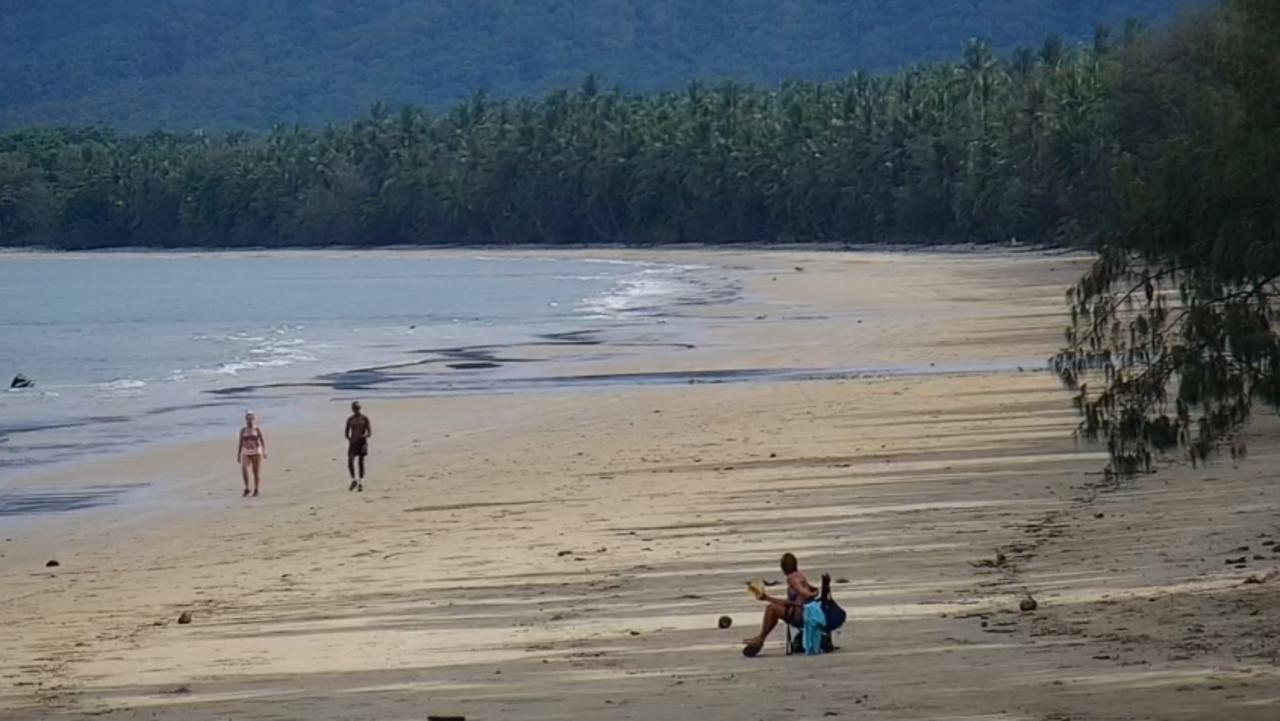
Add your comment to this story
To join the conversation, please log in. Don't have an account? Register
Join the conversation, you are commenting as Logout
‘Not appropriate’: Bleijie denounces WorkCover board deputy’s ‘slutty nurse’ post
Screenshots of questionable Facebook posts by the Jarrod Bleijie-appointed deputy chair of the WorkCover board have forced the Deputy Premier into a hasty response.
Northside traffic chaos: Major delays on key routes out of Brisbane
Traffic is at gridlock on multiple major routes and rat runs in Brisbane’s north, leaving commuters with a hellish trip home.
‘Devastated’: Tributes for developer after sudden death
Gold Coast developer Tye Alroe, who founded his own construction company after a brief stint with Melbourne Storm, has died suddenly aged 39. READ THE TRIBUTES
Calls for Straddie probe after glamping tents cost $244k EACH
A push is under way for an investigation into funding to boost tourism on North Stradbroke Island after claims nine glamping tents were built at a cost of more than $244,000 each.
Couple homeless after taking landlord to court despite rent arrears
A pair of cash-strapped tenants who have fought their eviction despite being behind on rent since moving in, have lost a hopeless last-ditch bid to stay.
Artist guilty of insurance fraud over burnt-out $50k pink Hummer
An artist who torched her distinctive pink Hummer and claimed $30,000 in insurance has escaped immediate jail despite the 'calculated' crime.